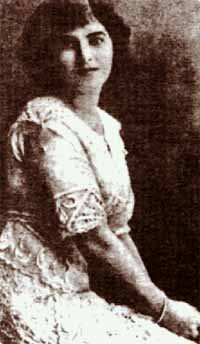
Cairo is the capital and largest city of Egypt and the Cairo Governorate, being home to more than 10 million people. It is also part of the largest urban agglomeration in Africa, the Arab world and the Middle East. The Greater Cairo metropolitan area is the 12th-largest in the world by population with over 22.1 million people.

Naguib Mahfouz Abdelaziz Ibrahim Ahmed Al-Basha was an Egyptian writer who won the 1988 Nobel Prize in Literature. In awarding the prize, the Swedish Academy described him as a writer "who, through works rich in nuance – now clear-sightedly realistic, now evocatively ambiguous – has formed an Arabian narrative art that applies to all mankind". Mahfouz is regarded as one of the first contemporary writers in Arabic literature, along with Taha Hussein, to explore themes of existentialism. He is the only Egyptian to win the Nobel Prize in Literature. He published 35 novels, over 350 short stories, 26 screenplays, hundreds of op-ed columns for Egyptian newspapers, and seven plays over a 70-year career, from the 1930s until 2004. All of his novels take place in Egypt, and always mention the lane which equals the world. His most famous works include The Cairo Trilogy and Children of Gebelawi. Many of Mahfouz's works have been made into Egyptian and foreign films; no Arab writer exceeds Mahfouz in number of works that have been adapted for cinema and television. While Mahfouz's literature is classified as realist literature, existential themes appear in it.
The culture of Egypt has thousands of years of recorded history. Ancient Egypt was among the earliest civilizations in the world. For millennia, Egypt developed strikingly unique, complex and stable cultures that influenced other cultures of Europe, Africa and the Middle East.

Amr Mohamed Helmi Khaled is an Egyptian Muslim activist and television preacher. The New York Times Magazine, in reference to Khaled's popularity in English-speaking countries, described him in 2006 issue as "the world's most famous and influential Muslim television preacher." In 2007, Amr Khaled was chosen as one of the world's 100 most influential people by Time magazine. His message appeals to a large number of Muslims who want an easy way to understand Islam.
Denys Johnson-Davies was an eminent Arabic-to-English literary translator who translated, inter alia, several works by Nobel Prize-winning Egyptian author Naguib Mahfouz, Sudanese author Tayeb Salih, Palestinian poet Mahmud Darwish and Syrian author Zakaria Tamer.
Utopia is a social novel by Egyptian author Ahmed Khaled Tawfik, published in 2008. It is his first novel released outside the Modern Arab Association, and it ranked second on the best-selling books list at Merit Publishing.

Ahdaf Soueif is an Egyptian novelist and political and cultural commentator.
Sudanese literature consists of both oral as well as written works of fiction and nonfiction that were created during the cultural history of today's Republic of the Sudan. This includes the territory of what was once Anglo-Egyptian Sudan, the independent country's history since 1956 as well as its changing geographical scope in the 21st century.

May Elias Ziadeh was a Palestinian-Lebanese Maronite poet, essayist, and translator, who wrote many different works both in Arabic and in French.

Egyptian literature traces its beginnings to ancient Egypt and is some of the earliest known literature. Ancient Egyptians were the first to develop written literature, as inscriptions or in collections of papyrus, precursors to the modern book.

Reem Bassiouney is an Egyptian author, professor of sociolinguistics and Chair Department of Applied Linguistics at The American University in Cairo. In Addition, Bassiouney is the editor of the Routledge Series of Language and Identity. She is also the editor and creator of the journal Arabic Sociolinguistics Edinburgh. She has written several novels and a number of short stories and won the 2009 Sawiris Foundation Literary Prize for Young Writers for her novel Dr. Hanaa. While a substantial amount of her fiction has yet to be translated into English, her novel The Pistachio Seller was published by Syracuse University Press in 2009, and won the 2009 King Fahd Center for Middle East and Islamic Studies Translation of Arabic Literature Award. Bassiouney also won Naguib Mahfouz Award from Egypt's Supreme Council for Culture in the best Egyptian novel category for her best selling novel, The Mamluk Trilogy. She was also the winner of the National Prize for Excellence in Literature of the year 2022 from the Egyptian Ministry of Culture. Bassiouney won Sheikh Zaid Literature Award for her novel Al Halwani: The Fatimid Trilogy in 2024.
Syrian literature is modern fiction written or orally performed in Arabic by writers from Syria since the independence of the Syrian Arab Republic in 1946. It is part of the historically and geographically wider Arabic literature. Literary works by Syrian authors in the historical region of Syria since the Umayyad era are considered general Arabic literature. In its historical development since the beginnings of compilations of the Quran in the 7th century and later written records, the Arabic language has been considered a geographically comprehensive, standardized written language due to the religious or literary works written in classical Arabic. This sometimes differs considerably from the individual regionally spoken variants, such as Syrian, Egyptian or Moroccan spoken forms of Arabic.
Libyan literature has its roots in Antiquity, but contemporary Libyan writing draws on a variety of influences.

Khaled Mohieddine was an Egyptian military officer, revolutionary and politician. As a member of the Free Officers Movement, he participated in the toppling of King Farouk that began the Egyptian Revolution of 1952, and led to the establishment of the Republic of Egypt.

Mahmoud Saeed is an Iraqi-born American novelist.
Radwa Ashour was an Egyptian novelist.
Edwar al-Kharrat was an Egyptian novelist, writer and critic.

Khaled Al Khamissi is an Egyptian novelist, columnist and cultural activist.

Sahier al-Qalamawi was a significant literary figure and politician from Egypt who shaped Arabic writing and culture through her writing, feminist activism, and advocacy. She was one of the first women to attend Cairo University and in 1941 became the first Egyptian woman to earn her Master of Arts Degree and PhD for her work in Arabic literature. After graduating, she was employed by the university as their first woman lecturer. Al-Qalamawi was also one of the first women to hold a number of chief positions including chairperson of the Arabic Department at Cairo University, president of the Egyptian Feminist Union, and president of the League of Arab Women University Graduates. Her writings include two volumes of short stories, ten critical studies, and many translations from world literature.Aḥādīth jaddatī was published in 1935.

Youssef Rakha is an Egyptian writer. His work explores language and identity in the context of Cairo, and reflects connections with the Arab-Islamic canon and world literature. He has worked in many genres in both Arabic and English, and is known for his essays and poems as well as his novels.












